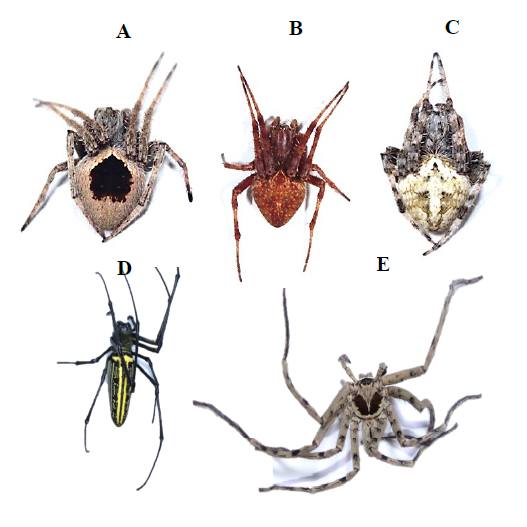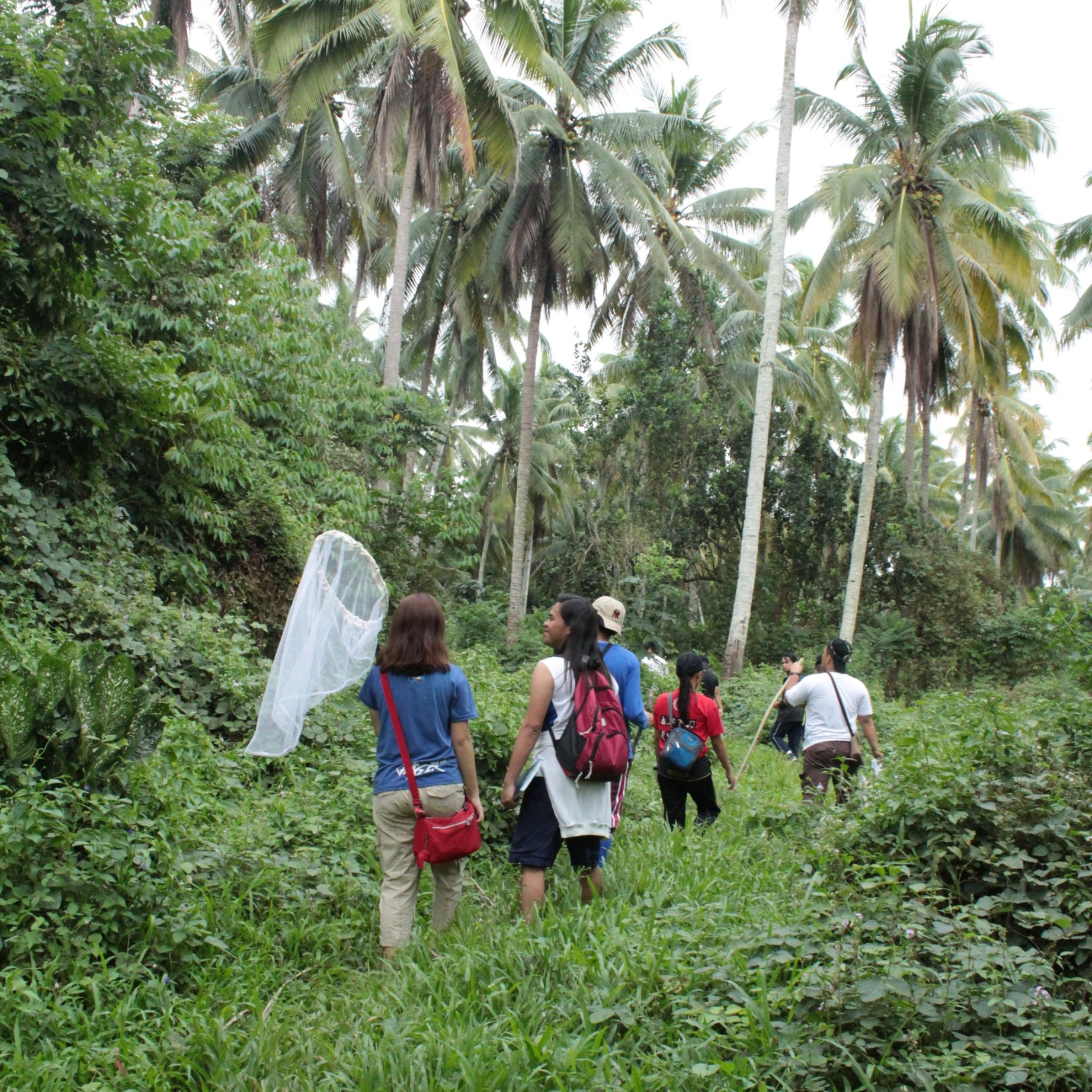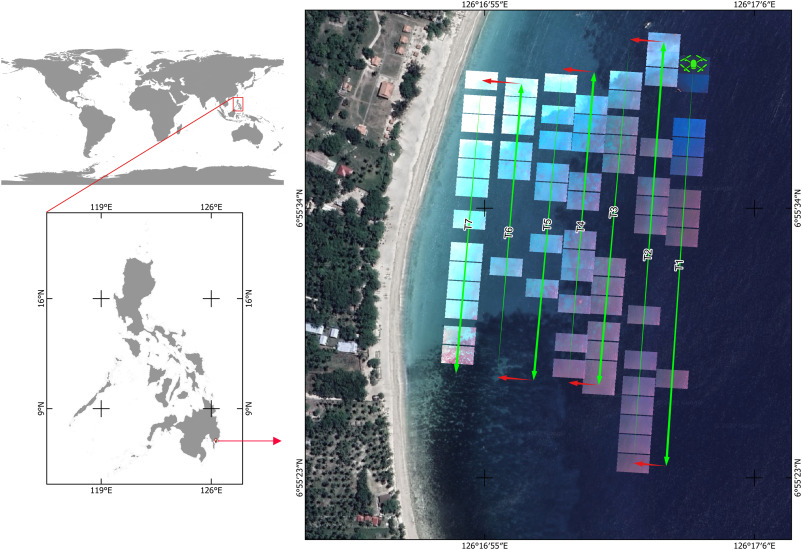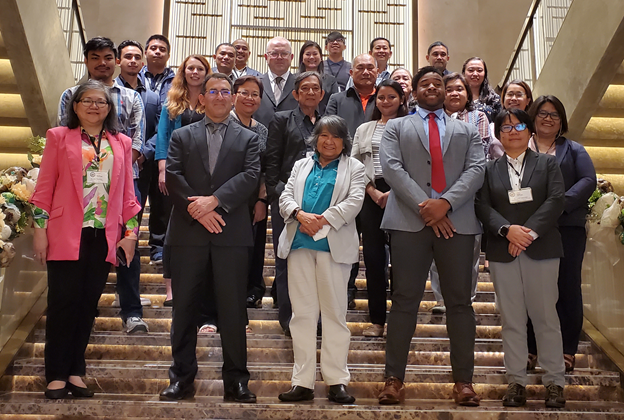ACIAR-funded research AGB/2018/196
An agribusiness-led multi-agency research team arrived in Davao in January to study how to enhance aspects of value chains for smallholder Filipino farmers. Chancellor Lyre Murao met the team at a welcome dinner in Davao City and a courtesy call on the UP Mindanao campus.
The project is named “Inclusive value chain development for smallholder farming systems in the Philippines (IVC Philippines) AGB/2018/196.” The research project aims to enhance the design, implementation, and adoption of inclusive value chains in smallholder farming systems in the Philippines. The team will do this by exploring roles, conditions, and specific value chain interventions that improve engagement and benefit the livelihoods of farmers, their communities, and their chain partners.
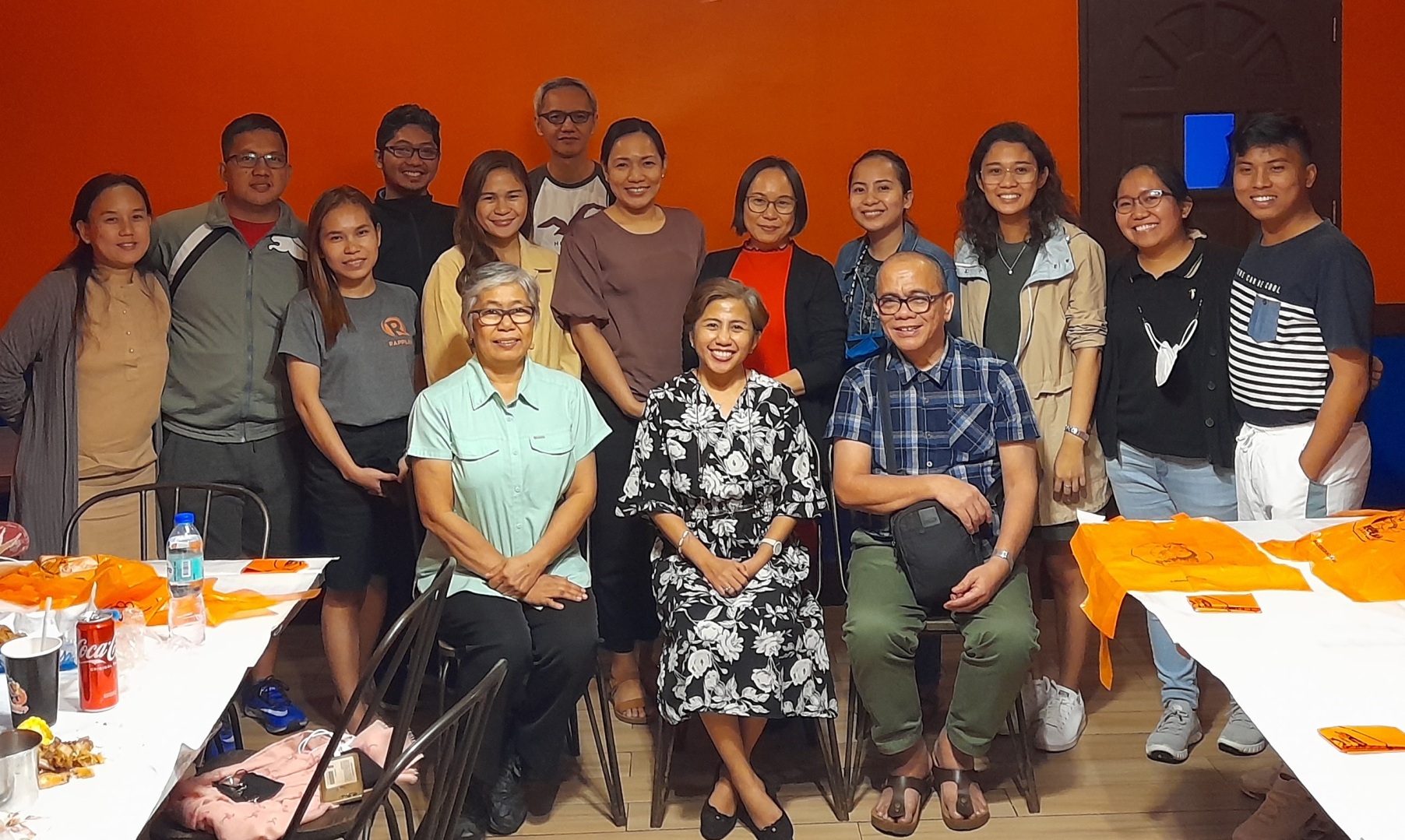 |
| Welcome Dinner (Jan 23) of the project Team with School of Management Dean Prof. Aurelia Luzviminda Gomez (Seated, Left) and UP Mindanao Chancellor Lyre Anni Murao (Seated, Middle). Leading the Visayas State University team is Prof. Antonio Abao (Seated, right). Leading the UP Mindanao Team is Ms. Marilo Montiflor (Standing, 5th from the right). Also joining the team from the private sector is Ms. Suzie Vanidad (Standing, 4th from the right) from Philippines Partnership for Sustainable Agriculture (PPSA). |
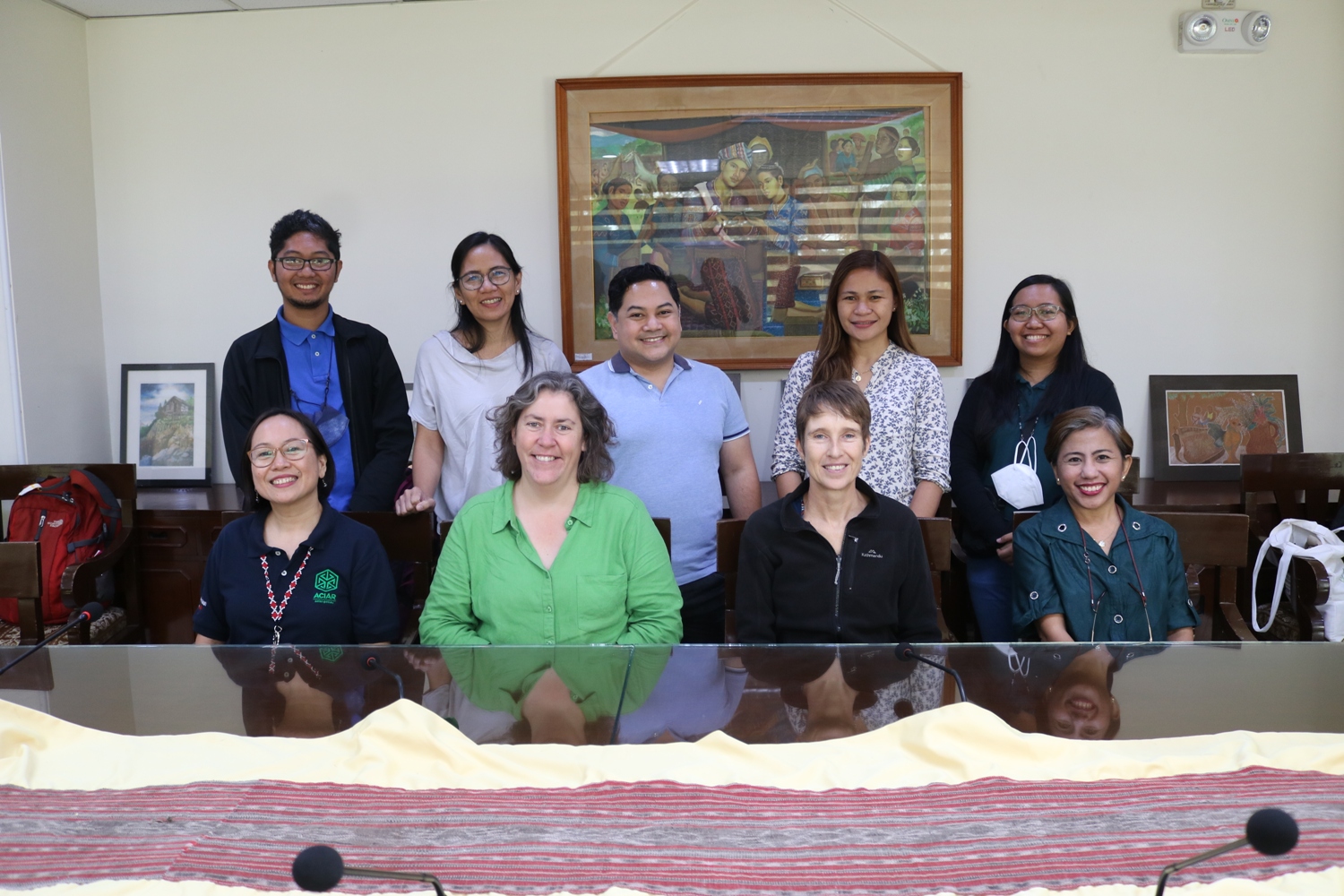 |
|
Photo 2 (courtesy of PRO) Courtesy call to UP Mindanao Chancellor, Jan 27, 2023 Seated- Left to Right Ms. Marilou Montiflor (Coffee/Coconut Case Study Lead, UP Mindanao); Dr. Wendy Merrit (Collaborator, Australian National University); Dr. Michaela Cosijn (Project Leader, Commonwealth Scientific and Industrial Research Organisation (CSIRO) - Prof. Lyre Anni Murao (Chancellor, UP Mindanao). Standing Left to right - Prof. Gideon Neil Tan (Collaborator, Visayas State University), Prof. Caroline Piñon (Collaborator, UP Los Baños); Mr. Anton Palo (Project Coordinator, Foodlink Advocacy Cooperative); Prof. Hadasha Bongat (Collaborator, Visayas State University); Ms. Ella Angeline Vaquilar (Research Associate, UPMin)
|
The Australian Centre for International Agricultural Research (ACIAR) is funding the research project which is a collaborative effort among the University of the Philippines Mindanao (UP Min), Foodlink Advocacy Co-operative (FAC), the Commonwealth Scientific and Industrial Research Organisation (CSIRO), the University of Queensland (UQ), UP Los Baños (UPLB), and Visayas State University (VSU).
The team held the welcome dinner on January 23, conducted a project workshop on January 24-26, 2023 in downtown Davao City and visited UP Mindanao on January 27, 2023.

